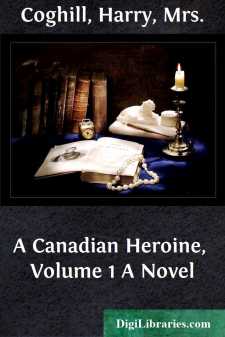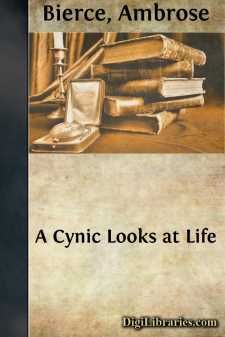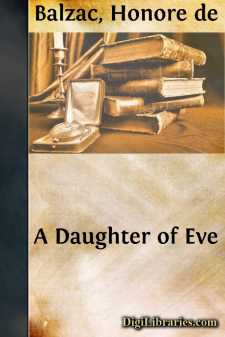Literary Collections
- American 84
- Ancient, Classical & Medieval 14
- Asian 1
- Australian & Oceanian 1
- Canadian 55
- Continental European 121
- English, Irish, Scottish, Welsh 179
- Essays 160
- General 24
- Letters 46
- Middle Eastern 1
Literary Collections Books
Sort by:
by:
Amelie Rives
A BROTHER TO DRAGONS. I. In the year of grace, 1586, on the last day of the month of May, to all who may chance to read this narrative, these: I will first be at the pains of stating that had it not been for Marian I had never indited these or any other papers, true or false. Secondly, that the facts herein set down be true facts; none the less true that they are strange. I will furthermore explain...
more...
by:
Edward Eldridge
CHAPTER I. CLARA LAWTON. "Well, dear," said Mrs. Lawton to her daughter Clara, "the home you will enter to-morrow as a bride is very different from the home that I entered as your father's bride. Our home was a log cabin in the Michigan woods, with only an acre of clearing, where the growing season is only about four months long and the winter eight. Snow lay on the ground six months...
more...
by:
Harry Coghill
CHAPTER I. It was near sunset, and the season was early summer. Every tree was in full leaf, but the foliage had still the exquisite freshness of its first tints, undimmed by dust or scorching heat. The grass was, for the present, as green as English grass, but the sky overhead was more glorious than any that ever bent above an English landscape. So far away it rose overhead, where colour faded into...
more...
by:
Harry Coghill
CHAPTER I. Mrs. Costello had felt it a kind of reprieve when she heard from Mr. Strafford that they might delay their journey safely for a month. The sober middle age which had come upon her before its time, as her life rolled on out of the anguish and tumult of the past, made home and quietness the most desirable things on earth to her, and her health and spirits, neither yet absolutely broken, but...
more...
Peter “No, Antone, I have told thee many times, no, thou shalt not sell it until I am gone.” “But I need money; what good is that old fiddle to thee? The very crows laugh at thee when thou art trying to play. Thy hand trembles so thou canst scarce hold the bow. Thou shalt go with me to the Blue to cut wood to-morrow. See to it thou art up early.” “What, on the Sabbath, Antone, when it is so...
more...
by:
Ambrose Bierce
I The question "Does civilization civilize?" is a fine example of petitio principii, and decides itself in the affirmative; for civilization must needs do that from the doing of which it has its name. But it is not necessary to suppose that he who propounds is either unconscious of his lapse in logic or desirous of digging a pitfall for the feet of those who discuss; I take it he simply wishes...
more...
by:
Honore de Balzac
CHAPTER I. THE TWO MARIES In one of the finest houses of the rue Neuve-des-Mathurins, at half-past eleven at night, two young women were sitting before the fireplace of a boudoir hung with blue velvet of that tender shade, with shimmering reflections, which French industry has lately learned to fabricate. Over the doors and windows were draped soft folds of blue cashmere, the tint of the hangings, the...
more...
by:
Honore de Balzac
PART I Mme. de Bargeton and Lucien de Rubempre had left Angouleme behind, and were traveling together upon the road to Paris. Not one of the party who made that journey alluded to it afterwards; but it may be believed that an infatuated youth who had looked forward to the delights of an elopement, must have found the continual presence of Gentil, the man-servant, and Albertine, the maid, not a little...
more...
by:
Honore de Balzac
A DRAMA ON THE SEASHORE Nearly all young men have a compass with which they delight in measuring the future. When their will is equal to the breadth of the angle at which they open it the world is theirs. But this phenomenon of the inner life takes place only at a certain age. That age, which for all men lies between twenty-two and twenty-eight, is the period of great thoughts, of fresh conceptions,...
more...
by:
Bret Harte
They had all known him as a shiftless, worthless creature. From the time he first entered Redwood Camp, carrying his entire effects in a red handkerchief on the end of a long-handled shovel, until he lazily drifted out of it on a plank in the terrible inundation of '56, they never expected anything better of him. In a community of strong men with sullen virtues and charmingly fascinating vices, he...
more...











